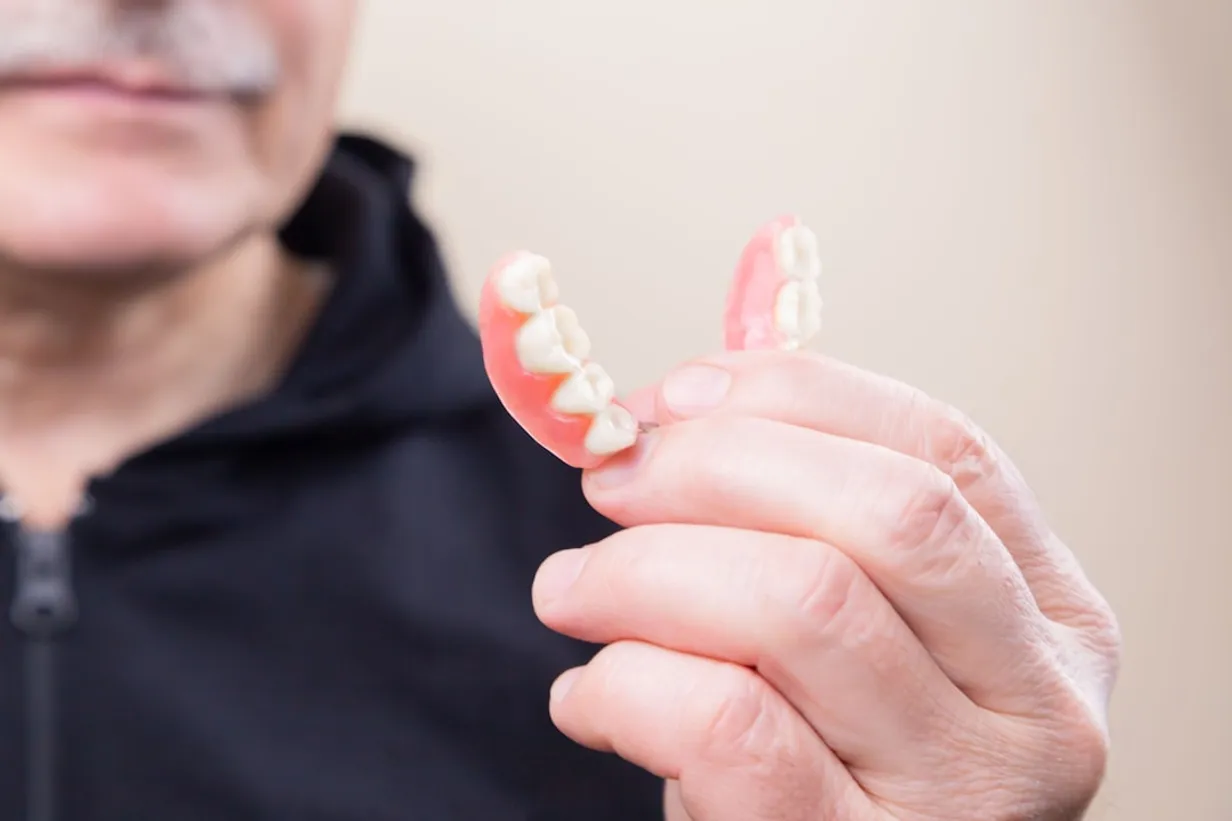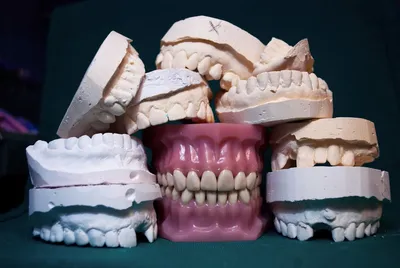What are dentures and partials and how do I know which one I need?

Understanding dentures & partials
If you have been exploring dental solutions for missing teeth, you have likely come across the terms dentures & 'partials. But what exactly are they and how can you choose the right one for you? This guide aims to provide clarity, making it easier for you to make an informed decision about your dental health.
What Are Dentures?
Dentures are removable dental appliances designed to replace an entire set of missing teeth. Typically made from acrylic resin, these full dentures fit over the gums and are custom-made to fit the individual's mouth. Modern dentures are designed to look like natural teeth and offer the benefit of a complete, functioning set of teeth.
What Are Partial Dentures?
Partial Dentures, on the other hand, are designed for those who are missing some but not all of their teeth. These partials fill in the gaps created by missing teeth with artificial teeth that are attached to a plastic base, sometimes with a metal framework for added support. The partial denture is anchored to your natural teeth, helping to prevent further shifting or misalignment.
How to Know Which One You Need
Assessing Your Dental Needs
The first step in deciding between dentures and partials is to assess your dental needs. Do you have multiple missing teeth, or are you looking to replace an entire arch of teeth? Your dentist will evaluate the condition of your remaining teeth and recommend the best course of action. Generally, if you are missing all your teeth in either the upper or lower jaw, full dentures will be the optimal choice. If you have several remaining healthy teeth, partial dentures might be more suitable.
Consider Your Lifestyle
Another factor to consider is your lifestyle. Dentures are easier to clean and require less meticulous care than partials, which must be carefully maintained to keep the natural teeth they attach to healthy. However, some find that getting used to full dentures can be a longer adjustment period compared to partials.
Comfort and Fit
Comfort is paramount when it comes to dental appliances. Full dentures may initially feel bulky and might require some time for your mouth to get used to them. Partials, while generally more comfortable from the get-go, require a good fit to avoid discomfort and irritation. Both dentures and partials will need periodic adjustments by your dentist to ensure they remain comfortable and functional.
Consulting with Your Dentist
Your dentist is your best resource when it comes to making the final decision between dentures and partials. During your consultation, your dentist will cover the pros and cons of each option, assess the health of your remaining teeth, and discuss your preferences and lifestyle to recommend the most suitable option for you.
Conclusion
Choosing between dentures and partials is a significant decision affecting your oral health and quality of life. By understanding the differences, evaluating your dental needs, and consulting with your dentist, you can make an informed choice that ensures comfort, functionality, and aesthetics. Remember, the right dental solution is one that helps you maintain a healthy, confident smile.
Popular Dental Implant Articles
Check out our most popular articles on dental implants and dentures, trusted by our readers for reliable information.



